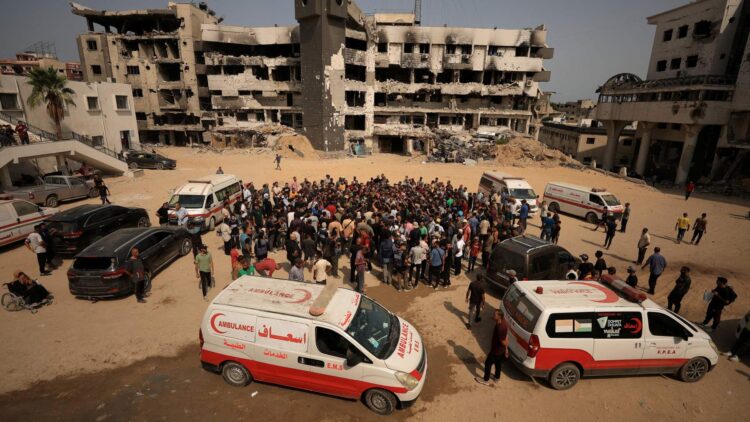Right now, five Al Jazeera journalists murdered in a targeted Israeli strike in Gaza were given funerals. Moments of violence frequently leave lasting scars in an area characterised by protracted tensions and intricate disputes, not only for those directly involved but also for the outside world that observes with concern. Incidents that take place in regions where conflict is still going strong often have an impact that extends much beyond the immediate area. These worries have been intensified by recent incidents involving press personnel, which have brought up pressing issues.
Israel claims Hamas ties after killing an Al Jazeera journalist in an airstrike
A prominent Al Jazeera journalist, who had previously been threatened by Israel, was killed along with four colleagues in an Israeli airstrike on Sunday, in an attack condemned by journalists and rights groups. Israel’s military said it targeted and killed Anas Al Sharif, alleging he had headed a Hamas militant cell and was involved in rocket attacks on Israel.
Al Jazeera, which is funded by the Qatari government, rejected the assertion, and before his death, Al Sharif had also denied such claims by Israel. Al Jazeera said,
“Anas Al Sharif and his colleagues were among the last remaining voices in Gaza conveying the tragic reality to the world.”
Hamas said in a statement,
“The assassination of journalists and the intimidation of those who remain pave the way for a major crime that the occupation is planning to commit in Gaza City.”
There was a desperate attempt to silence voices behind the attack
Al Sharif, 28, was among a group of four Al Jazeera journalists and an assistant who died in an airstrike on a tent near Al Shifa Hospital in eastern Gaza City, Gaza officials and Al Jazeera said. A hospital official said two other people died. A sixth journalist, local freelance reporter Mohammad Al-Khaldi, was also killed in the strike, medics at Al Shifa Hospital said on Monday.
Calling Al Sharif “one of Gaza’s bravest journalists”, Al Jazeera said the attack was a “desperate attempt to silence voices in anticipation of the occupation of Gaza”. The other journalists killed were Mohammed Qreiqeh, Ibrahim Zaher and Mohammed Noufal, Al Jazeera said. Qatari Prime Minister, Sheikh Mohammed bin Abdulrahman Al-Thani, said on X,
“The deliberate targeting of journalists by Israel in the Gaza Strip reveals how these crimes are beyond imagination.”
International reactions have been triggered by the murders of reporters
Human rights organisations, governments, and press freedom supporters have all expressed immediate international condemnation and worry over the reporters’ killings. These organisations stress that journalists ought to be shielded as impartial parties who are not singled out or ensnared in the crossfire. The loss of seasoned reporters covering sensitive and frequently hazardous topics is painful.
International organisations and governments have called for moderation and adherence to international regulations intended to safeguard journalists and civilians. Discussions about how to more effectively implement these safeguards and the possible repercussions for violators have been sparked by the incident. The incident presents challenging issues regarding transparency, and now, the U.S. plan aims to disarm Hezbollah and exit Gaza by year-end.
Palestinian militant group Hamas, which runs Gaza, said the killing may signal the start of an Israeli offensive. Israeli Prime Minister Benjamin Netanyahu has said he will launch a new offensive to dismantle Hamas strongholds in Gaza, where a hunger crisis is escalating after 22 months of war, and Netanyahu wants full Israeli control over Gaza. A clear reminder of the perils encountered by people who are dedicated to providing testimony during times of war is provided by the terrible deaths of reporters in a conflict zone. It reiterates the crucial role journalists play in educating the public and calls.
GCN.com/Reuters


